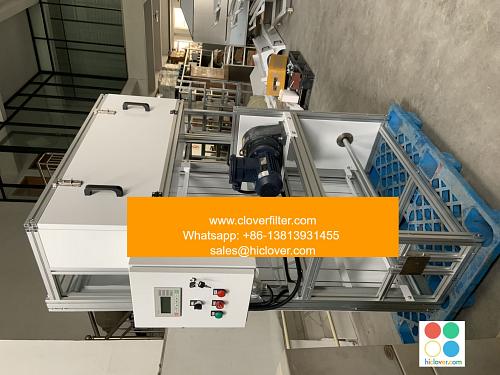The Importance of Air Filtration in Healthcare Manufacturing

The healthcare manufacturing industry is a critical sector that requires a high level of cleanliness and purity to ensure the quality of its products. One of the most important aspects of maintaining a clean environment in healthcare manufacturing is air filtration. In this article, we will discuss the importance of air filtration in healthcare manufacturing, highlighting various application areas and key considerations.
Introduction to Air Filtration in Healthcare Manufacturing
Air filtration is the process of removing contaminants and impurities from the air to create a clean and sterile environment. In healthcare manufacturing, air filtration is used to prevent the spread of airborne pathogens, reduce the risk of contamination, and maintain the quality of products. The use of HEPA filters (High Efficiency Particulate Air) and (Ultra Low Penetration Air) is common in healthcare manufacturing facilities to achieve high levels of air cleanliness.
Application Areas of Air Filtration in Healthcare Manufacturing
Air filtration is applied in various areas of healthcare manufacturing, including:
* Pharmaceutical manufacturing: Air filtration is used to prevent contamination and ensure the quality of pharmaceutical products.
* Medical device manufacturing: Air filtration is used to prevent the spread of airborne pathogens and maintain the sterility of medical devices.
* Biosafety laboratories: Air filtration is used to prevent the spread of airborne pathogens and maintain a safe working environment for laboratory personnel.
* Operating rooms: Air filtration is used to maintain a sterile environment and prevent the spread of airborne pathogens during surgical procedures.
Key Considerations for Air Filtration in Healthcare Manufacturing
When implementing air filtration systems in healthcare manufacturing facilities, there are several key considerations to keep in mind, including:
* Airflow rates: The airflow rate of the air filtration system must be sufficient to maintain a clean and sterile environment.
* Filter efficiency: The filter efficiency of the air filtration system must be high enough to capture airborne contaminants and impurities.
* System maintenance: Regular maintenance of the air filtration system is necessary to ensure optimal performance and prevent contamination.
* Compliance with regulations: Air filtration systems must comply with relevant regulations and standards, such as ISO 14644 and EU GMP.
Benefits of Air Filtration in Healthcare Manufacturing
The benefits of air filtration in healthcare manufacturing are numerous, including:
* Improved product quality: Air filtration helps to prevent contamination and ensure the quality of products.
* Reduced risk of airborne infection: Air filtration helps to prevent the spread of airborne pathogens and reduce the risk of infection.
* Increased patient safety: Air filtration helps to maintain a sterile environment and reduce the risk of patient infection.
* Compliance with regulations: Air filtration helps to ensure compliance with relevant regulations and standards.
In conclusion, air filtration is a critical aspect of healthcare manufacturing, and its importance cannot be overstated. By highlighting various application areas and key considerations, we can appreciate the significance of air filtration in maintaining a clean and sterile environment, preventing contamination, and ensuring the quality of products. The use of HEPA filters and ULPA filters is essential in achieving high levels of air cleanliness, and regular maintenance of air filtration systems is necessary to ensure optimal performance. By prioritizing air filtration, healthcare manufacturers can improve product quality, reduce the risk of airborne infection, and increase patient safety, while also ensuring compliance with relevant regulations and standards.

